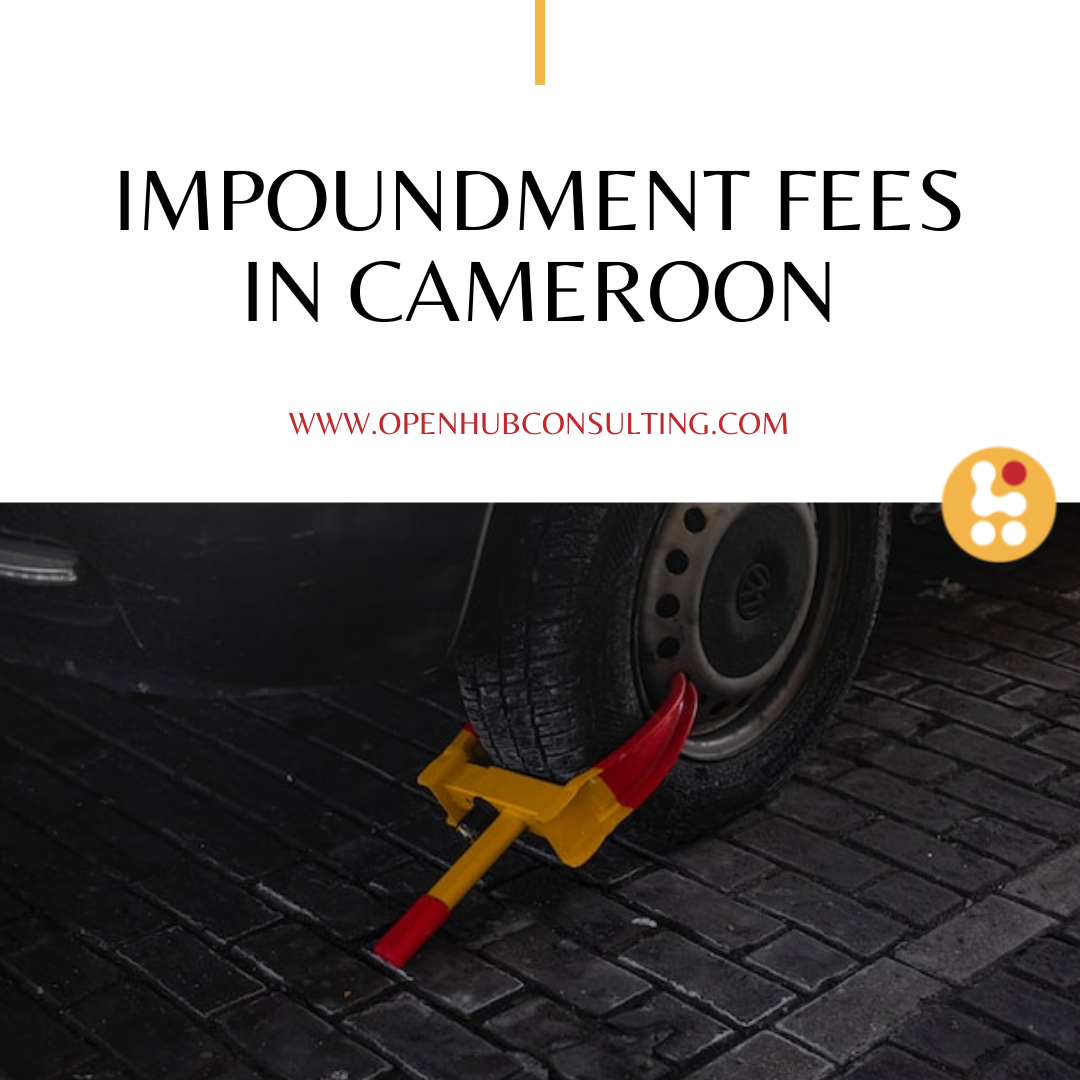Impoundment fees play a crucial role in maintaining order and enforcing road regulations in Cameroon. These fees are imposed on stray animals, vehicles, and objects found without a custodian or in violation of road regulations.
The collection of impoundment fees helps generate revenue for local councils and ensures that these items are properly managed. In this section, we will delve into the details of impoundment fees in Cameroon, including the rates, payment obligations, and the process for reclaiming impounded items.
Overview of Impoundment Fees
Section C 78 of the Cameroon General Tax Code states that stray animals, vehicles, and objects found without a custodian or in violation of road regulations may be seized and placed in an impound. The impoundment fees are required to be paid before the items can be released to their owners.
Rates of Impoundment Fees
The rates of impoundment fees in Cameroon are set within specific maximum limits, as outlined in Section C 79. The fees vary based on the type of item being impounded. Here are the maximum limits for different categories:
1. Livestock:
– Heavy livestock: From 5,000 to 10,000 CFAF (Central African CFA franc) per head and per day.
– Small livestock: From 2,000 to 5,000 CFAF per head and per day.
– Pets: From 2,000 to 5,000 CFAF per head and per day.
2. Vehicles:
– Heavy vehicles and equipment: From 10,000 to 50,000 CFAF per vehicle and per day.
– Other vehicles: From 5,000 to 15,000 CFAF per vehicle and per day.
– Motorcycles: From 1,000 to 5,000 CFAF per motorcycle and per day.
3. Other Objects:
– Other objects found on the public highway: From 1,000 to 3,000 CFAF per object and per day.
Payment and Collection of Impoundment Fees
Impoundment fees are collected by the Council Revenue Collector based on a collection order issued by the competent Municipal Officer.
The Municipal Officer is responsible for determining the duration of impoundment and issuing the necessary documentation for fee collection.
Reclaiming Impounded Items
Owners of impounded animals, vehicles, or objects have the opportunity to reclaim their property upon payment of the impoundment fees.
It is important to note that if the items are not claimed within 30 days of impoundment, the council has the authority to auction them off in accordance with the regulations in force.
The Role of Impoundment Fees
Impoundment fees serve multiple purposes in Cameroon. Firstly, they act as a deterrent, encouraging individuals to comply with road regulations and prevent animals and objects from becoming strays.
Secondly, these fees help generate revenue for local councils, which can be utilized for various purposes, including infrastructure development and maintenance.
Impoundment fees in Cameroon play a vital role in promoting order and enforcing road regulations. By imposing these fees on stray animals, vehicles, and objects, the government ensures that individuals take responsibility for their possessions and comply with the law. Furthermore, the revenue generated from impoundment fees contributes to the development and maintenance of local infrastructure.
Further knowledge on Council Levies
“Understanding Council Levies in Cameroon: Types, Obligations, and Implications” delves into the various types of council levies imposed in Cameroon, exploring their purpose, obligations for taxpayers, and the impact they have on local communities.
The article sheds light on the significance of these levies in funding local development projects and maintaining essential services.
In “Slaughter Tax in Cameroon: Supporting Local Economy and Infrastructure,” the focus shifts to the specific tax imposed on slaughterhouses in Cameroon. This tax plays a crucial role in supporting the local economy and infrastructure by generating revenue for the government.
The article explores how this tax is calculated, its implications for slaughterhouse owners, and the positive impact it has on the community.
Lastly, “Understanding Cattle Tax in Cameroon” provides insights into the cattle tax system in Cameroon. It highlights the importance of this tax in regulating the cattle industry, promoting sustainable practices, and ensuring the well-being of livestock.
The article covers the obligations of cattle owners, the methods used to calculate the tax, and the ways in which the revenue generated benefits the local agricultural sector.
These articles provide valuable information for understanding the various council levies in Cameroon, including their types, obligations, implications, and their role in supporting the local economy and infrastructure.
Remember to consult with local authorities or legal experts for specific details and updates regarding cattle tax in your region.
Photo by Alex Plesovskich on Unsplash

OpenHub Consulting Ltd
OpenHub Consulting offers comprehensive services to support your business’s needs. From bookkeeping and tax declaration to company incorporation, our expert team is here to assist you.
With our customized small business accounting solutions, you can trust that your financial records are accurate and up-to-date.
We also specialize in tax declaration services, ensuring that your business remains compliant with tax laws.
And when it comes to company incorporation, we streamline the process, guiding you through each step with precision. Visit openhubconsulting.com to learn more about how our services can benefit your business.
Discover more from OpenHub Digital
Subscribe to get the latest posts sent to your email.

